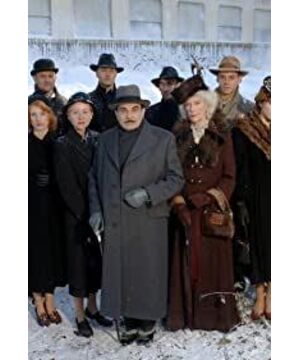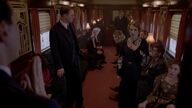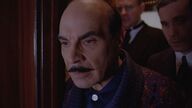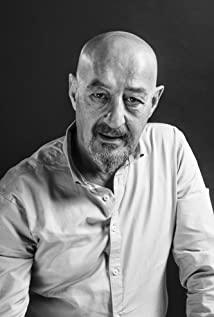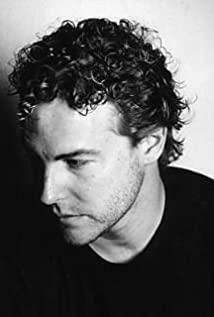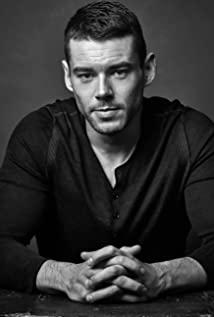I read it again after watching it. The old version started with the horrific kidnapping case in America and the corresponding details, as a reminder to the audience that the center of the old version was the case itself.
The new version begins with a few words from Polo in a certain case that caused the suspect to commit suicide, and then saw the local Islamic people stoning a woman who committed adultery on the road in Istanbul.
I have a disgust that Western civilization underestimates other civilizations, and I regard it, together with the arrogance of the directors of the Eastern Train, as this work is full of discrimination against the savagery of the East, which makes me underestimate the concept of screenwriters and directors. But until the end of the film, when Poirot denounced the 12 murderers for flouting the law and pretending to be justice, when Poirot concealed the truth of the case from the local police, held a cross in his hand, and left alone, did I feel that these are the Associated with it.
"Justice is ...often upsetting to witness" When Polo said this point about stoning, when he angrily denounced the 12 Avengers, he had always been a believer in the law.
"The rule of law, it must be held high!" He clenched his fists tightly. "Even if it is unfair, it should be filled with belief and made stronger over time. Once legal belief collapses, civilized society will have no place to live." He Shout out loud.
"But there is a kind of justice above the rule of law," followed by "Jesus said." Twelve members of the "jury" presented their reasons for justice.
Although Polo insisted verbally, he retreated at the end of the film, and he clenched the cross.
On the last night of the kidnapper who died not too badly in the film, before going to sleep, he put down his protective pistol in a panic, sat down and prayed, praying that God this "spare pistol" would give him safety, and at the same time, on the other side of the camera, Polo. He also holds the cross in his hand, praying like God before going to bed. Religion, the cross, becomes yet another centerpiece of the new Orient Train Murder. The old version doesn't mention Polo's beliefs, just his ridiculous maintenance of his moustache when he goes to bed. But this edition highlights the beliefs of the great detective.
A man who believes in the justice of God also believes in the law, but in the process of being commissioned to solve a murder case, his faith is shaken, whether it is God or the law.
If God is just, why does he let these murderers go free; if the law is just, why does he let these murderers go free; if man is just, what are the law and God?
The concept of civilization, in Western thought, is about freedom and human rights guaranteed by the rule of law. The supremacy of religion was a thing in the dark feudal period. People got rid of the shackles of religion, and when they entered civilization, religion became a kind of condiment - a criterion for maintaining people's moral standards. It is no longer a supreme being.
But the film again pulls those out and stings people.
What are we after? What is justice?
At the end of the film, Poirot holds a cross in his hand, with a tangled expression and a distant back, all of which the director is asking people: What is justice?
Even if the kidnapper's misdeeds were more intrusive than the one-off description in the old edition - lust, fear of death, cruelty, and even God was a sustenance for him to save his life, but when he was in the corpse carriage, When Fei Xue covered it up, his crying face still showed that he was a man.
Who has the right to declare him dead? Who can take his life?
At the same time, the 12 judges complained with blood and tears, and hated them deeply. How did the law treat them before? What made them become murderers?
justice.
When people are a moment in the long history, in front of justice, they are so insignificant; but in a person's life, justice is played by people with applause.
The shortness of life, the inhumanity of justice, and the contradiction between the pros and cons of human nature have led to such a tragedy.
It's not as exciting as the old version, but it's definitely worth a look.
View more about Murder on the Orient Express reviews


